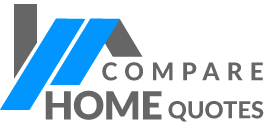Debt Consolidation or Mortgage Refinancing to Adjust Your Debt?
Liberate yourself from your debts using your home. See the homeowner debt solutions offered by your financial advisor: refinancing your home, consolidating your mortgage debt, using the equity in your home, and more.
Equity in your home can give you funds you can use to pay off high-interest loans such as credit cards, personal loans, etc. Your mortgage has lower interest rates and can save you thousands of dollars on interest payments.
You will also be able to pay off credit card debts fast to get peace of mind and improve your financial situation.
Find out more by getting the best debt consolidation offers or mortgage refinancing from top mortgage brokers in our network!
Just fill out the form to receive FREE and NO-COMMITMENT offers today.
What are the solutions to indebtedness for homeowners?
If you are a homeowner, would it be advantageous for you to use your home or any other property you own to pay off your debts?
You like to spend … but you don’t want to be in debt! If this is the case, what are the possible solutions?
There is nothing wrong with having debts because financial products such as car loans, mortgage loans, credit cards, or credit lines allow us to enjoy a higher quality of life. We are able to achieve our goals faster when we take advantage of such financing.
However, not all debts improve our life. Long-term credit card debt can eat away on our finances due to high-interest payments. If you keep paying the minimum, you’ll never get rid of this debt.
If you have amassed a sizable credit card balance, the goal should be to pay off as soon as possible.
Having multiple due dates for several loans can also be confusing, not to mention, stressful.
Wouldn’t it be great to have only one (1) debt to pay each month with a lower interest rate? This is what debt consolidation is all about – putting all of your financial obligations together to make it easier for you to keep up with your payment obligations.

Home equity line of credit to pay off your debts through your home
Depending on your situation, the majority of financial institutions allow the conversion of your mortgage into a line of credit. Your loan will, however, be limited to 65% of the market value of your home.
The line of credit is often combined with a conventional mortgage. Although variable, the interest rates associated with a home equity line of credit are much lower than those associated with a personal loan or conventional mortgage.
The home equity line of credit is a great solution to homeowner debt because it allows you to increase the balance of your mortgage when you want without having to go to your financial institution or a notary if the amount borrowed is significant.
What is home equity?

Home equity represents the value of your home minus the amount you still owe on your mortgage loan. For instance, if your property is worth $250,000 and you still owe the lender $150,000, you have an equity of $100,000.
The equity in your home can increase as you pay down your mortgage or when the value of your home goes up.
You can tap into your home equity to use the funds to pay off debts that you can’t pay or are high in interest.
Just remember – taking out a home equity loan will increase your monthly mortgage payment. If you can’t repay it, you could lose your home.
Taking out a home equity loan makes a lot of sense if it will be used for debt consolidation and the results will improve your financial health.
What is a home equity line of credit?
A home equity line of credit, also called HELOC, works a lot like a credit card. It is a revolving line of credit which you can use when you need funds by writing a check. You will have an assigned credit limit which you cannot exceed. You only pay for the portion of the line that you actually use. When you repay it, it becomes available again for you when you need it.
There are 2 basic types of home equity lines of credit:
- Combined with your mortgage
- Stand-alone credit line
Many banks offer home equity lines of credit combined with a conventional mortgage. It could be a fixed term mortgage plus a credit line with a variable interest rate.
Usually, a home equity line of credit requires payment of interest on the amount you actually use and no fixed repayment amount.
A combined mortgage with a home equity line of credit generally allows a maximum of 65% of the market value. The amount of credit that is available to you goes up as you pay down the principal of your mortgage.
On the other hand, a stand-alone home equity line of credit is not directly related to your mortgage. The maximum credit limit is up to 65% of the property’s market value and will not increase even as the principal of your mortgage decreases.
You can apply for a stand-alone home equity line of credit with any lender you choose.
A HELOC can provide tax advantages that other loans don’t have. Like any type of home loan, your property secures the loan and failing to repay it can put your property in jeopardy.
What is a home equity loan?
Unlike a home equity line of credit, a home equity loan is the release of additional funds from your lender secured by the equity you own in your home.
In general, the interest rate on home equity loans are lower than other types of loans such as business loans, credit cards, personal loans, etc.
Not all lenders offer home equity loans. If your current lender does offer home equity loans, you will need to undergo a new approval process. Once approved, the lender deposits the amount you borrowed to your account.
You will repay the amount you borrowed in equal monthly installments, similar to how you pay for your mortgage.
The amount you can borrow will be determined by your lender based on the market value of the home, your credit history, and your income. It is also limited to a maximum of 85% of the equity in your home. Hence, if your equity is $100,000, you can only borrow a maximum of $85,000.
What is the interest rate on a home equity line of credit?
Most home equity lines of credits have variable interest rates. These rates often are low when you begin your monthly payments but they could rise during the repayment period.
A financial advisor can give you advice about home equity loans to help you with your financial goals.
Upfront costs for home equity loans
You may need to pay administrative fees like:
- Appraisal fee
- Title search
- Title insurance
- Notarial or legal fees
Your current mortgage lender may need to revise the terms of your mortgage agreement. For information on title insurance or legal fees, you may visit real estate lawyers’ fees.
Federal 3-day Cancellation Policy
Federal law gives consumers 3 days to reconsider a credit agreement and to cancel without any penalty.
You can only cancel, however, if the collateral being used is your principal residence – home, condo, house boat, or mobile home. A vacation or second home does not apply.
With this right to cancel, you have until the 3rd business day (midnight) to cancel the transaction. Day 1 begins when you have signed the credit contract and receive the Truth in Lending Disclosure with the details such as finance charge, amount financed, payment schedule, and the APR.
During the 3-day period, the lender may not deliver the funds. If your loan is for a home renovation, the contractor may wait until after the 3-day cancellation period before commencing work or delivery of materials.
To cancel, you need to inform your lender in writing. The law requires that such notice of cancellation be done via mail, electronic filing, or delivered before midnight of the third business day.
Mortgage consolidation for refinancing with your home
Refinancing your mortgage by combining the payment of your debts to that of your mortgage to obtain a lower interest rate is another debt solution for a homeowner who can no longer pay his bills.
A consolidation with your home mortgage allows you to make a single payment each month and manage your debts more easily. Considering that the amount of your debts will be added to your mortgage balance you can, if necessary, extend the amortization period of your mortgage.
As a homeowner, this debt solution is particularly beneficial if the market value of your home has increased. It is possible to borrow up to 80% of the equity of your home (its market value minus your mortgage balance) to pay off your debts.
If the consolidation of your personal debts or your credit cards with your mortgage is an option that interests you, contact Compare Home Quotes – Financial Advisor via our Web support platform. In less than 48 hours, you will be put in contact with a professional financial adviser who specializes in debt consolidation free and without commitment.
The reverse mortgage, another solution to homeowner debt
Reserved for people aged 55 and up, a reverse mortgage allows you to borrow up to 55% of the value of your home without having to make your mortgage payments each month.
Interest on your loan is added monthly to your loan. The equity of your home will proportionally decrease the accumulation of these, reducing (or eliminating) the legacy that you had planned to leave.
You don’t need to repay the loan unless you sell your home or if you do not move you can, at your leisure, use the money to pay off your debts.
There are also other solutions to your over-indebtedness such as:
You negotiate credit terms and conditions with your creditors allowing you to reduce your monthly payments in order to be able to repay the entire debt
The Court takes a certain percentage of your salary every month and redistributes the amount to your creditors
You will propose to your creditors to extend your repayment period or to accept a refund equal to a certain percentage of the amount due to them.
To free yourself from most of your debts and get have a fresh start, you agree to live for a certain time only with the goods that are most needed.
As you can see, there are several solutions to your debt if you own a home. How can you choose the solution that best suits your situation?

How to choose the solution to your debt as a homeowner?
If the cause, magnitude, and nature of any financial difficulties are varied, the solutions to the debt are just as much. However, as your situation is unique, an assessment of your case is important before choosing any of the options mentioned.
Let a financial advisor who specializes in over-indebtedness guide you to with the best solution for you as a homeowner. Just fill out the short online request form on this page, free of charge.
The Compare Home Quotes team, will send your request to experts who know debt solutions for real estate owners like you. They will help you to eliminate your debts by using your property.
Don’t waste any time! The partners of Compare Home Quotes have proven themselves. They have been carefully selected for their excellent reputation, experience, expertise, track record, and professionalism.
Benefits of choosing your financial advisor who specializes in over-indebtedness
It is difficult to think clearly when you’re in financial trouble. You must make important choices.
Be advised by an expert who knows the solutions to indebtedness
As a homeowner, choose the refinancing method for your home that suits you best.
Avoid mistakes and pitfalls of refinancing your home
Be aware of the benefits and consequences of a consolidation that involves your home.
Determine your financial capacity to repay this new mortgage loan
See if you need to extend the amortization period of your loan or save on interests by keeping the same monthly payments.
Get clear answers to all your questions:
- Does your financial situation permit you to use the solution that interests you?
- What are the costs of refinancing your debts using your home?
- What debts do you need to repay altogether?
- Can you use a financial institution other than the one from which you took out your original mortgage?
- Will refinancing your home hurt your credit rating?
- Etc.

What is good or bad debt?
Good debt is when you borrow money that will improve your overall financial health over time. These debts, for example. Are:
- A home renovation loan to increase home value (investment)
- Student loan to get a higher-paying job
- A home equity line of credit to consolidate high-interest rate loans
Bad debts are those that have short-term value such as paying for a holiday or trip or buying luxury goods.
If you have bad debts, it is not the end of the world. You can get yourself out of debt by using the equity in your home.
Speak to our experienced and reliable partners today by filling out the short online form on this page!
Find without further delay your debt solutions using your home
The partners of the online platform, Compare Home Quotes, are at your disposal to guide you regarding the refinancing of your mortgage to obtain money which can help you to eliminate your excessive debt.
By completing the form on this page, you will receive in less than 48 hours, up to three (3) proposals from financial advisors in your area who specialize in over-indebtedness, free of charge.
You can easily compare them and choose the one that is best suited to your needs.
In addition to being quick, the service from Compare Home Quotes does not require any commitment.
To help you get out of debt using your property, Compare Home Quote’s financial advisor partners are the smartest choice.

















